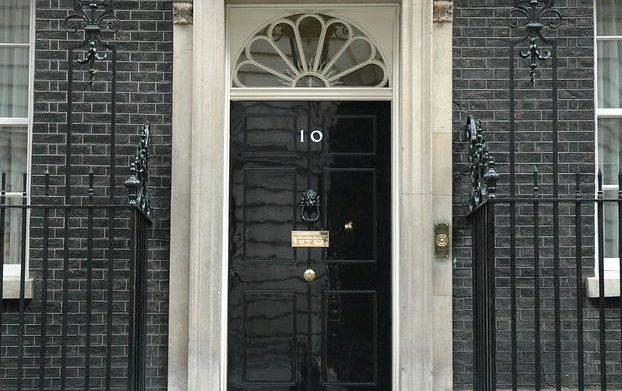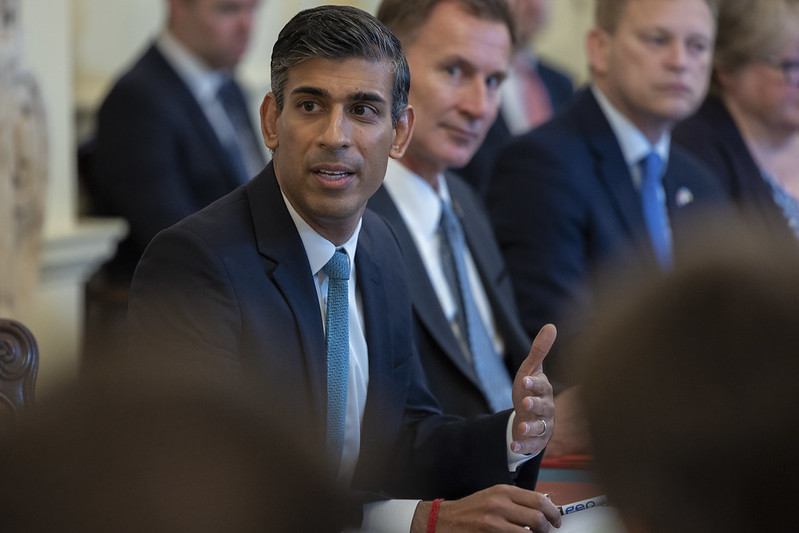2022 may be remembered as one of the more turbulent years in human rights history in the UK. As the country came out of Covid-19 restrictions, there were hopes that the economy would be relaunched with fairer pay for key workers and a focus on upholding rights.
Instead, 2022 has been a chaotic year, which has seen a historical fall in standards of living, political musical chairs, key-worker strikes and controversial policies which have been introduced, shelved and brought back with cabinet reshuffles. Here is what happened to human rights this year.
The past year has witnessed three prime ministers in office – Boris Johnson, Liz Truss and the incumbent, Rishi Sunak.
Political musical chairs
One thing that has united the three has been a controversial string of cabinet appointments which have led to policies and Bills come and go alongside their authors.
The ongoing political turmoil has resulted in an array of scepticism about the government’s attitudes to rights in the UK. While some Bills, including the Bill of Rights, have been brought, shelved, resurrected and remain pending, concerns have been growing around the government’s pursuit of dismantling the Human Rights Act (HRA), advancing deportations and threats to pull the UK out of the European Court of Human Rights (ECtHR).
The Bill of Rights
The Bill of Rights’ author, justice secretary Dominic Raab, claimed that the ‘poorly written’ Bill was a promise left over from the Conservative 2010 manifesto. It was brought forward by Raab at the beginning of 2022 following a controversial consultation on the HRA.
If passed the Bill of Rights will replace the HRA, which stemmed from the European Convention on Human Rights, which was established after World War II. The HRA is the landmark legislation that prevents people in the UK having their rights trampled by the state. Raab’s move to replace it with a new Bill of Rights has been described as a ‘power grab’ and a ‘con’.
The Bill was shelved when prime minister Liz Truss formed a new government in September, which saw Raab replaced as justice secretary. Once he was reinstated, it wasn’t long before he announced that the Bill would return.
The Bill has been criticised for potentially:
- Putting less onus on public authorities to proactively safeguard our rights
- Making justice less accessible and deflecting scrutiny from the government
- Make deportations easier
- Ensuring UK courts do not have ‘any regard’ to Strasbourg
The reemergence of the Bill is politically vague, but Raab has said that it will return “shortly” – which could see it brought before parliament in the new year.
Rwanda policy ruled ‘lawful’
In April 2022 former home secretary Priti Patel signed the £120m Rwanda migration partnership, which seeks to send asylum seekers and migrants to the east African country for processing.
The policy was picked up by Suella Braverman when she was appointed to the same position by prime minister Liz Truss, who was in power for 44 days.
Braverman was sacked as home secretary by Liz Truss after she sent a government document about immigration from her personal email to a Conservative MP in breach of ministerial rules. Braverman was then reappointed six days later when Rishi Sunak was voted in to number 10.
The ECtHR had intervened in a last-minute ruling which stopped any flights under the scheme until the UK’s domestic courts could determine if it was legal.
The policy, which has been widely criticised by MPs, Lords, human rights groups and the UN, was recently found by the High Court to be lawful. Despite whispers from ministers that the government are eager to get flights off the ground “as soon as possible”, both the Home Office and the prime minister have stated that a timeframe cannot be given.
While the policy was ruled legal, eight individual cases will be determined separately and another hearing could be launched in 2023 if an appeal is made.
Strikes
As inflation rose at its fastest rate since 1982, key workers began to strike, including nurses, paramedics, train drivers, teachers, postal workers and criminal barristers.
Unions representing NHS workers had asked for staff pay rises above inflation, but the health secretary said that was “unaffordable”.
Train drivers have called for a 24-hour strike to take place on 5 January 2023 in the long-running dispute over pay and conditions on UK railways.
In November, Aslef, the trade union representing train drivers, asked its members whether they would like to take further industrial action, to which 93 per cent voted in favour. Aslef represents 96 per cent of train drivers in England, Scotland and Wales.
The train operating companies affected in the past year include: Avanti West Coast, CrossCountry, Great Western Railway, Greater Anglia, GTR Great Northern Thameslink, London North Eastern Railway, Southeastern, Southern/Gatwick Express, South Western Railway (depot drivers only), SWR Island Line and West Midlands Trains.
The matter has escalated to the point where union bosses have became the target of editorial slating. Rishi Sunak accused union boss Mick Lynch of using workers in a “class war“. Sunak used a column in the Sun on Sunday newspaper to say union members were being used ‘as foot soldiers’.
Following the remarks, Sunak said: “The army is stepping up and we’re putting in place other measures to keep services running where possible.”
Mick Lynch has recently become a household name following a series of television interviews that went viral. He is also affiliated with the campaign group Enough is Enough, which was founded by trade unions and community organisations determined to push back against the cost of living crisis.
Enough is Enough highlighted that without the right to strike, workers would not have a minimum wage, sick pay, redundancy or sick pay.
A cost-of-living crisis
The ‘cost of living crisis’ is the fall in ‘real’ disposable incomes that the UK has experienced since late 2021. It is being caused predominantly by high inflation, wages not increasing and energy prices driven up by the conflict in Ukraine.
In early February, the government announced measures to respond to high energy prices. At the spring statement, the former chancellor Rishi Sunak announced some more general policies to support squeezed household budgets, with further support being announced in May.
On 17 November, chancellor of the exchequer Jeremy Hunt released the autumn statement, which he claimed would deliver a plan to tackle the cost of living crisis and rebuild the economy. The statement came amid findings from the OBR stating that household incomes would dive by 7 per cent and unemployment will rise by more than 500,000 across the country.
One of the largest legal challenges to legacy benefits also took place this year. Two million people on legacy benefits missed out more than £1,500 in extra Universal Credit support payments during the Covid-19 lockdown in the UK. Four claimants brought a challenge to the High Court in November 2021 in relation to the UK government’s failure to apply a similar increase to legacy benefits.
During UK national lockdowns between April 2020 to October 2021, people on Universal Credit received a £20 weekly increase from the Department for Work and Pensions (DWP). The increase was to help them pay for additional costs incurred during the pandemic and any subsequent lockdowns. A judgment for the case is expected in 2023.
Under Article 11 of the the International Covenant on Economic, Social and Cultural Rights, everyone has the right to an adequate standard of living, which the Universal Credit uplift was introduced to help with.





